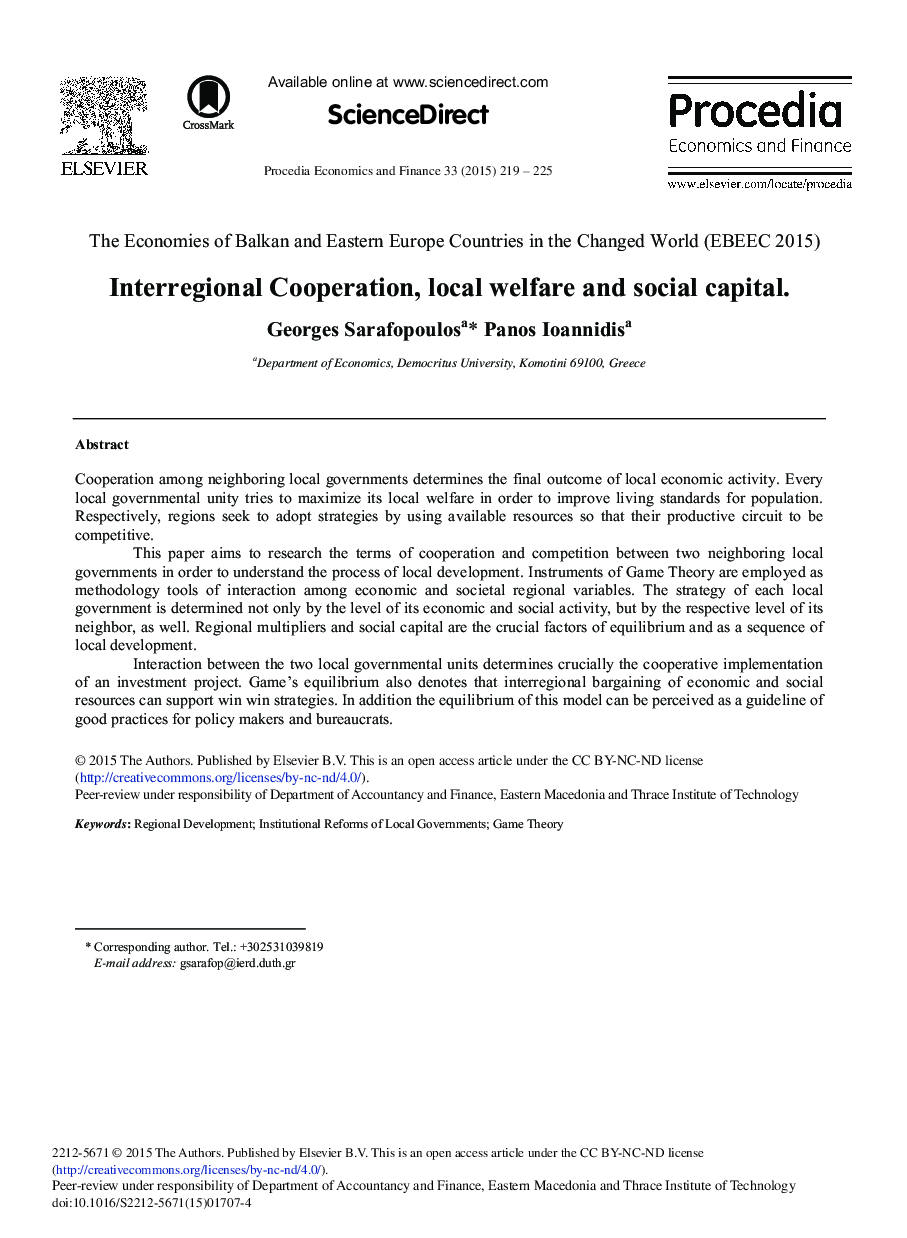| Article ID | Journal | Published Year | Pages | File Type |
|---|---|---|---|---|
| 980758 | Procedia Economics and Finance | 2015 | 7 Pages |
Cooperation among neighboring local governments determines the final outcome of local economic activity. Every local governmental unity tries to maximize its local welfare in order to improve living standards for population. Respectively, regions seek to adopt strategies by using available resources so that their productive circuit to be competitive.This paper aims to research the terms of cooperation and competition between two neighboring local governments in order to understand the process of local development. Instruments of Game Theory are employed as methodology tools of interaction among economic and societal regional variables. The strategy of each local government is determined not only by the level of its economic and social activity, but by the respective level of its neighbor, as well. Regional multipliers and social capital are the crucial factors of equilibrium and as a sequence of local development.Interaction between the two local governmental units determines crucially the cooperative implementation of an investment project. Game's equilibrium also denotes that interregional bargaining of economic and social resources can support win win strategies. In addition the equilibrium of this model can be perceived as a guideline of good practices for policy makers and bureaucrats.
